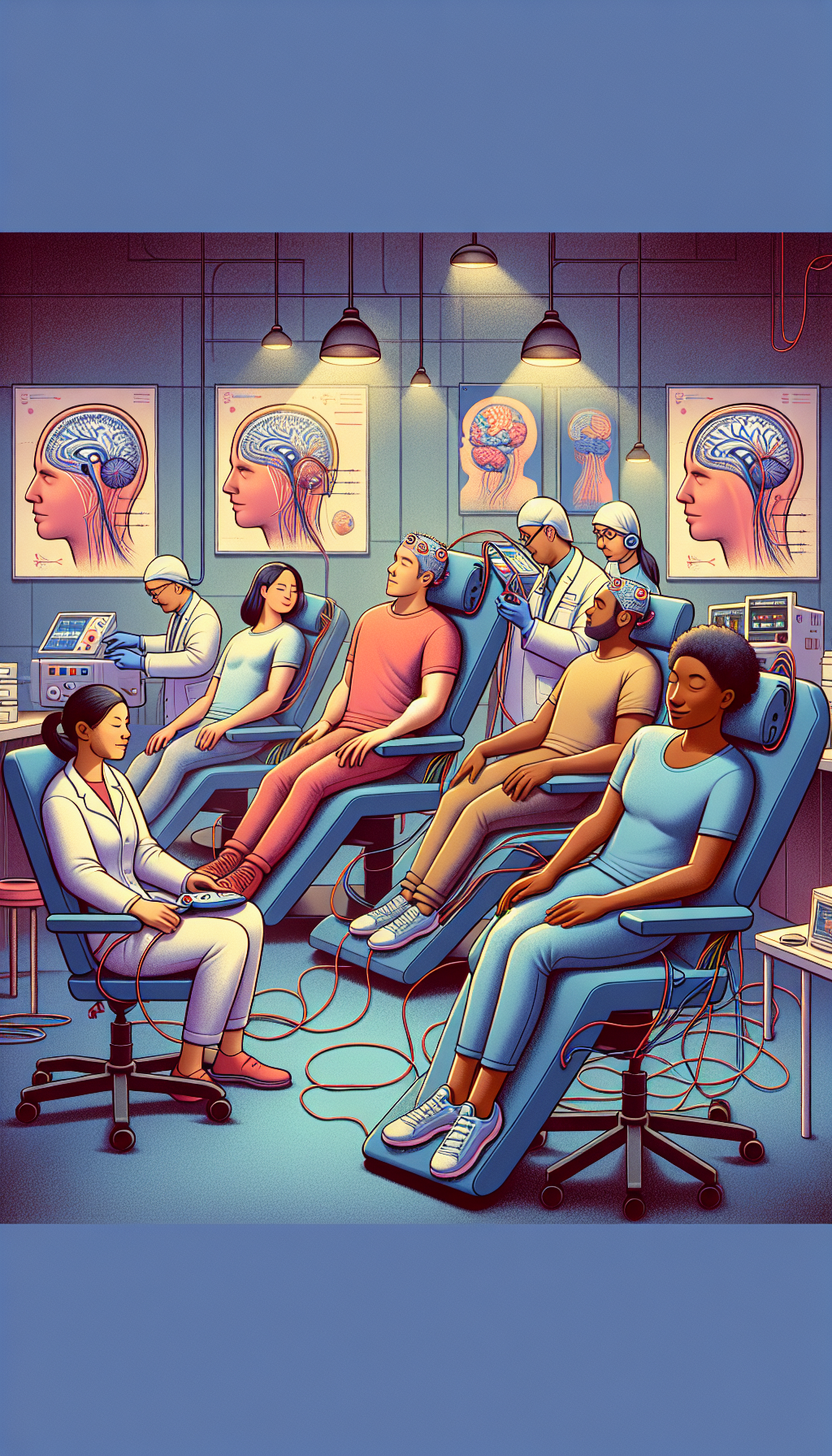Deep Brain Stimulation (DBS) represents a remarkable convergence of neuroscience, engineering, and medicine, offering hope for individuals with neurological disorders. This advanced treatment involves the implantation of electrodes in specific brain areas, delivering electrical impulses that regulate abnormal impulses. Its application spans conditions such as Parkinson’s disease, dystonia, and even refractory obsessive-compulsive disorder, showcasing its versatility in addressing a spectrum of neurological challenges.
The Mechanism Behind Deep Brain Stimulation
DBS operates on the concept of modulating neurological circuits. The brain is an intricate network of neurons, communicating through electrical signals. When these signals become erratic, neurological symptoms manifest. DBS’s electrodes target these misfiring circuits, essentially ‘resetting’ them to alleviate symptoms. It’s a form of neuromodulation—akin to a pacemaker for the brain—that can be adjusted and personalized for each patient’s needs.
The Promising Outcomes of DBS
Patients undergoing DBS often report significant improvements in their quality of life. For instance, those with Parkinson’s disease may experience reduced tremors, less stiffness, and improved movement. In dystonia, muscle contractions and involuntary movements diminish. The therapy’s precision allows it to target symptoms at their source, reducing the need for medication and its associated side effects.
The Brain Health Connection
Given its impact on neurological disorders, DBS has a profound connection with brain health. It extends beyond symptom management, potentially promoting neuroplasticity—the brain’s ability to reorganize itself by forming new neural connections. This adaptability is crucial for recovery from brain injuries and combating cognitive decline. For a more comprehensive understanding of brain health, consider exploring various factors that contribute to cognitive wellness.
The Broader Implications of DBS
Research into DBS’s long-term effects is ongoing, but its potential to delay the progression of neurodegenerative diseases is a subject of considerable interest. As we understand more about brain circuitry and develop more sophisticated technology, DBS could become a pivotal strategy in treating a broader range of conditions, possibly even those related to mood and behavior.
Supporting Brain Health Through Lifestyle Choices
While DBS is a medical intervention, it’s important to recognize the role of lifestyle choices in supporting brain health. Activities that encourage neurogenesis, like physical exercise, mental stimulation, and certain dietary choices, complement treatments like DBS. For example, the neuroprotective effects of green tea, as discussed on Avix Health, can be part of a holistic approach to maintaining cognitive function.
The Importance of an Integrated Approach
An integrated approach to healthcare, one that combines DBS with rehabilitation therapies, psychological support, and lifestyle modifications, can offer the best outcomes. Adjunct therapies, such as strategies for improving emotional intelligence and techniques to accelerate recovery from neurological injuries, are vital components of a comprehensive brain health strategy.
DBS in the Landscape of Brain Health Interventions
DBS is just one of many interventions for brain health. It’s essential to understand it in the context of other treatments and strategies. For instance, the significance of combating neuroinflammation cannot be overstated, as inflammation is a common pathway for many neurological disorders.
Niche Resources Supporting DBS Research
The scientific community continues to uncover the intricacies of DBS. Here are several niche resources that provide further insight into this therapy’s potential:
- A study by the National Institutes of Health offers a comprehensive look at the physiological mechanisms DBS targets.
- The Parkinson’s Foundation provides detailed patient resources on DBS as a treatment for Parkinson’s disease.
- Frontiers in Neuroscience has published articles exploring the role of DBS in modulating neuroplasticity.
- The International Parkinson and Movement Disorder Society offers insights into the benefits of DBS for dystonia patients.
Future Directions and Ethical Considerations
As we venture further into the realm of DBS, ethical considerations come to the fore. The prospect of manipulating brain activity raises questions about autonomy, consent, and the nature of self. These discussions are critical in guiding the responsible advancement of DBS technology.
Conclusion
Deep Brain Stimulation stands at the frontier of neuroscientific progress, offering life-altering benefits for those with debilitating neurological conditions. As we continue to unravel the complexities of the brain and refine our technological approaches, the promise of DBS in enhancing brain health and function grows ever more apparent. It is a beacon of hope, illuminating the path to a future where the full potential of our brain health can be realized.



